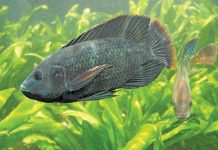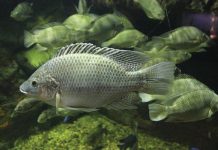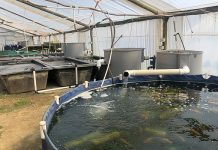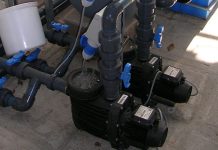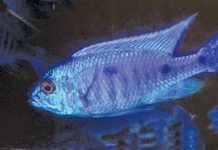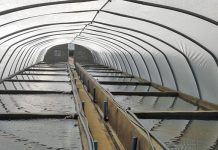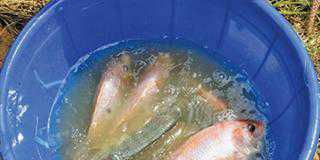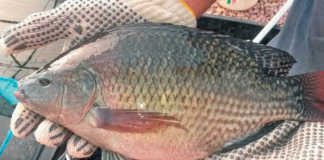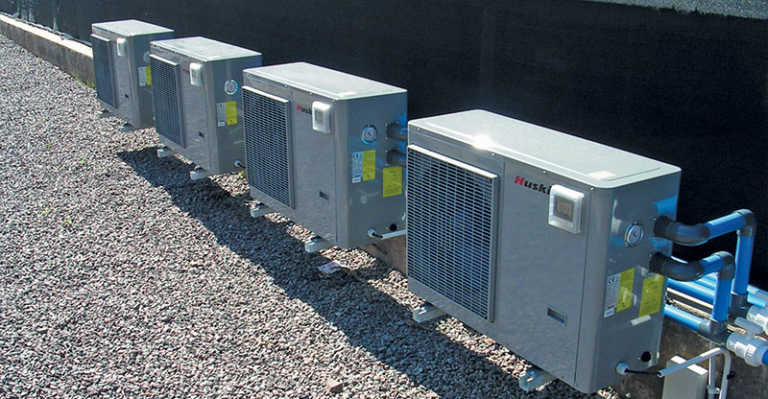
Fish farming systems come in a bewildering array of designs, complicated by the fact that aquaculture involves more than pure engineering; the biological aspect is even more important. The design used can be divided into two subtypes: re-circulating or flow-through systems. However, this is a gross over-simplification.
Egypt and South africa: contrasting approaches
A basic requirement of an aquaculture system is the need to maintain the water within the right temperature range. South Africa and Egypt, both with cool winter water temperatures that are below optimum for tilapia, employ contradictory approaches.
In Egypt, with its Mediterranean climate and water temperatures as low as 13°C in winter, the cold is so severe that survival, not growth, is the objective. Here, a low-tech approach is used, with tunnels partially covering earth ponds, which allows for thermal shelters during winter. In summer, when water is very warm, the fish move out into the open.
South Africa, on the other hand, has adopted a more First World approach: recirculating systems in tunnels with filtration are most commonly used.
Egypt produces one million tons of tilapia annually. However, this cannot be attributed solely to Egypt’s design system. Enabling environmental legislation, government-sponsored feed mills, and the active extension promotion of the industry by government agencies all contribute to Egypt’s success.
Undoubtedly, however, the adoption of a less sophisticated system in a country with political and economic instability has been an advantage.
A design for South Africa
Assuming that South Africa will continue to adopt the recirculating aquaculture system (RAS) approach, designs must be adjusted to compensate for South Africa’s challenges.
- Heat: Tunnels are non-negotiable. Only a few systems benefit from free heat, and these should be exploited. However, any area where water can be warmed by either direct or indirect methods is a potential tilapia culture site.
- Filtration: Filtration design is a subject of endless debate. The level of sophistication must be proportionate to the scale of the project, its access to reliable services and back-up, its source of energy supply, and the skills needed to operate it.
- Skills development: I have seen sophisticated farms where the cutting edge filtration technology is fully understood by just one operator, and when something goes wrong, and this operator is unavailable, other staff are simply at a loss. On-the-job training is therefore imperative.
When designing or promoting a system, bear in mind that the person using it is likely to know far less than you do.

